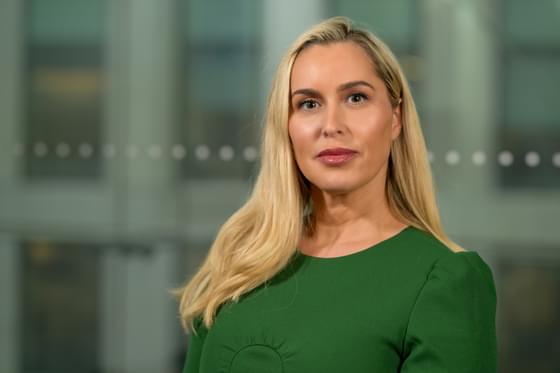Shariah-Compliant Finance Explained

This editorial was originally published in Business Moneyfacts Magazine.
As a Shariah-compliant ethical bank, we conduct our business according to the principles of transparency, fairness and ethical venture. These principles strongly resonate with consumers across the board, who are becoming increasingly values-driven and looking for ways to align their values to their financial goals.
Islamic finance is one of the fastest growing sectors in financial services globally, predicted to surpass US$4 trillion in assets by 2030.[1] The UK is one of the sector’s largest markets outside the Middle East, with an expected growth from an estimated US$7.5 billion in 2024 to approximately US$9 billion by 2030.[2]
However, there remains a lack of understanding about what the main differences between Islamic and conventional finance are and who is able to access it. Research from Gatehouse Bank’s Islamic and Ethical Finance Report 2024 found that, while there was an increased awareness of Islamic finance among UK consumers of the Muslim faith, misconceptions remained amongst three in ten (30%) people that Islamic finance is only available to those of the Muslim faith. [3] This shows that more needs to be done to challenge these ideas and raise further awareness that Islamic finance is a compelling alternative to conventional options and is available to everyone, of all religions and none.
How does Shariah-compliant finance differ from conventional finance?
The main difference between Shariah-compliant and conventional finance is that the former does not pay or charge interest. This is because Shariah principles state that money should not be generated in and of itself. Instead, funds must be put to a good use to generate profit supported by a genuine trade or business-related activity. In addition to this, finance and investments must not be used to support harmful sectors, such as alcohol, tobacco, gambling, adult entertainment or arms.
With this socially responsible approach to investments in mind, many see Shariah-compliant banking as a more ethical option. At Gatehouse Bank, we have taken our commitment to do good by society and the environment one step further by becoming a founding signatory to the UN Principles for Responsible Banking. This means that our core strategy, investments and decision making are aligned with the UN’s Sustainable Development Goals, the Paris Climate Agreement and other sustainable development frameworks.
Research conducted last year by Gatehouse Bank found that nearly half (45%) of UK homebuyers would consider using an ethical home finance provider that aligns with Islamic principles. Similarly, over one in three (37%) of UK homebuyers said that they would be most interested in opting for a Shariah-compliant provider because funds aren’t invested in unethical industries. [4] This highlights the importance of continuing to raise awareness about Islamic finance and placing it as a compelling alternative to conventional finance options.
How do Shariah-compliant finance products work?
For homebuyers seeking home finance, Shariah-compliant providers such as Gatehouse Bank offer Home Purchase Plans (HPPs), which are commonly known as the Islamic alternative to a mortgage. This involves the customer and the Bank forming a partnership to purchase the property together, with the customer then paying monthly acquisition payments and rent on the share of the property they do not yet own. Once all payments have been made, full ownership of the property is transferred to the customer.
At Gatehouse Bank, we also offer a range of Buy-to-Let purchase plans for UK Resident, UK Expat and International landlords which can be used just like a conventional mortgage to buy or refinance property.
Shariah-compliant savings products, such as those offered by Gatehouse Bank, do not offer interest. Instead, customers’ deposits are invested carefully, with profits then being shared from the returns generated. This is known as the expected profit rate.
What’s next for Shariah-compliant finance?
With an increased consumer interest in Shariah-compliant finance products, partly due to those seeking more ethical alternatives, it is clear that more must be done to raise awareness and address the lingering misconceptions around Islamic finance.
At Gatehouse Bank, we are also committed to ensuring that Islamic finance is placed on a level playing field with conventional finance and that any barriers which persist to accessing this can be removed. As detailed in our latest report, Striving for Growth: Fostering the UK’s Islamic Finance Sector, we have published four key recommendations for the UK government to continue fostering growth in the Islamic finance sector and are working closely with relevant parties to make this a reality. In doing so, we can ensure the sector can continue to grow and thrive as projected and that the demands of consumers within the UK and overseas can be met, now and in the future.
- Research and Markets, 2022: UK Islamic Finance Market - Growth, Trends, Covid-19 Impact and Forecasts (2022-2027) Report
- Mordor Intelligence, Islamic Banking in the UK Market Size & Share Analysis – Growth Trends and Forecasts (2025-2030), 2024
- Islamic and Ethical Finance Consumer Report 2024
- Gatehouse Bank, https://gatehousebank.com/news/almost-half-45-of-uk-homebuyers-would-consider-using-an-ethical-finance-provider-that-follows-islamic-principles-finds-gatehouse-bank